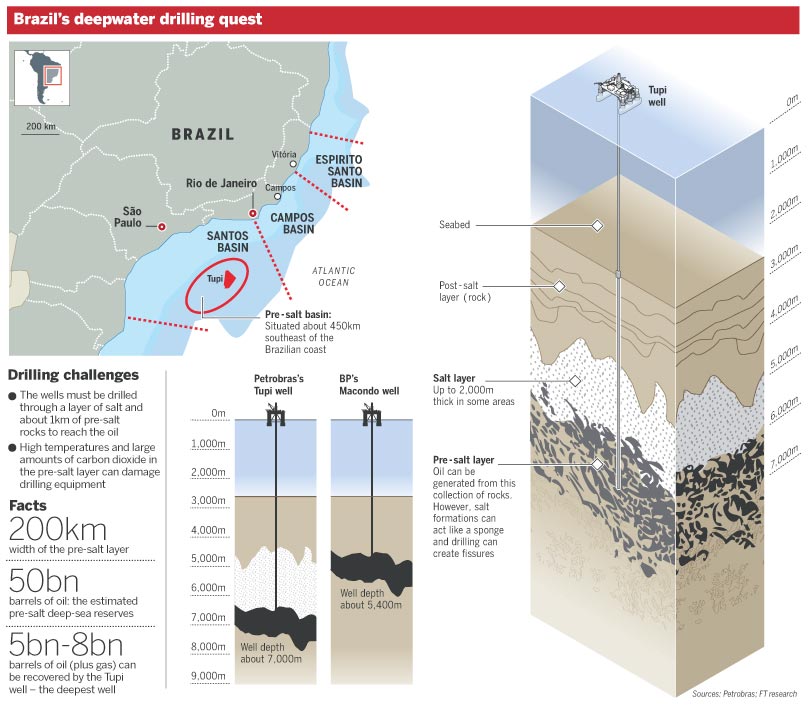Despite legal setbacks to the Federal Government’s moratorium on deepwater exploration, regulatory uncertainty remains very high in the United States. The final outcome of the investigation will not be known for some time, but earlier reports seemed to point to human error and faulty well design as the primary culprits. Eventually, demand for oil and the desire to limit foreign imports will likely result in removal of the deepwater restrictions in the Gulf of Mexico, albeit with more stringent safety regulations and potentially higher costs. At the same time, other countries are not halting progress in deepwater technology.
Brazil is aggressively pursuing deepwater oil discoveries and recently began production on the country’s first commercial deep sea platform. Brazil’s deepwater wells are typically deeper than wells in the Gulf of Mexico and entail more technical difficulties. The Financial Times published an article today detailing some of the risks that the country is trying to manage in the wake of the Deepwater Horizon disaster. The following graphic from the article illustrates the scope of the challenge when compared to BP’s Macondo well. (Click on image to enlarge it).
The salt layer that sits between the seabed and the oil deposits pose a particular challenge due to the potential for damage to drilling parts and the propensity of salt to act as a “sponge” that makes it difficult to control the drilling process. Regulators and exploration firms continue to examine the science behind these deposits. In a world of increasingly scarce oil in easily accessible locations, more intense deepwater exploration seems inevitable even while industry and governments attempt to mitigate the risk of exploring in uncharted territory.
Disclosure: The author owns shares of companies in the oil and gas industry.

